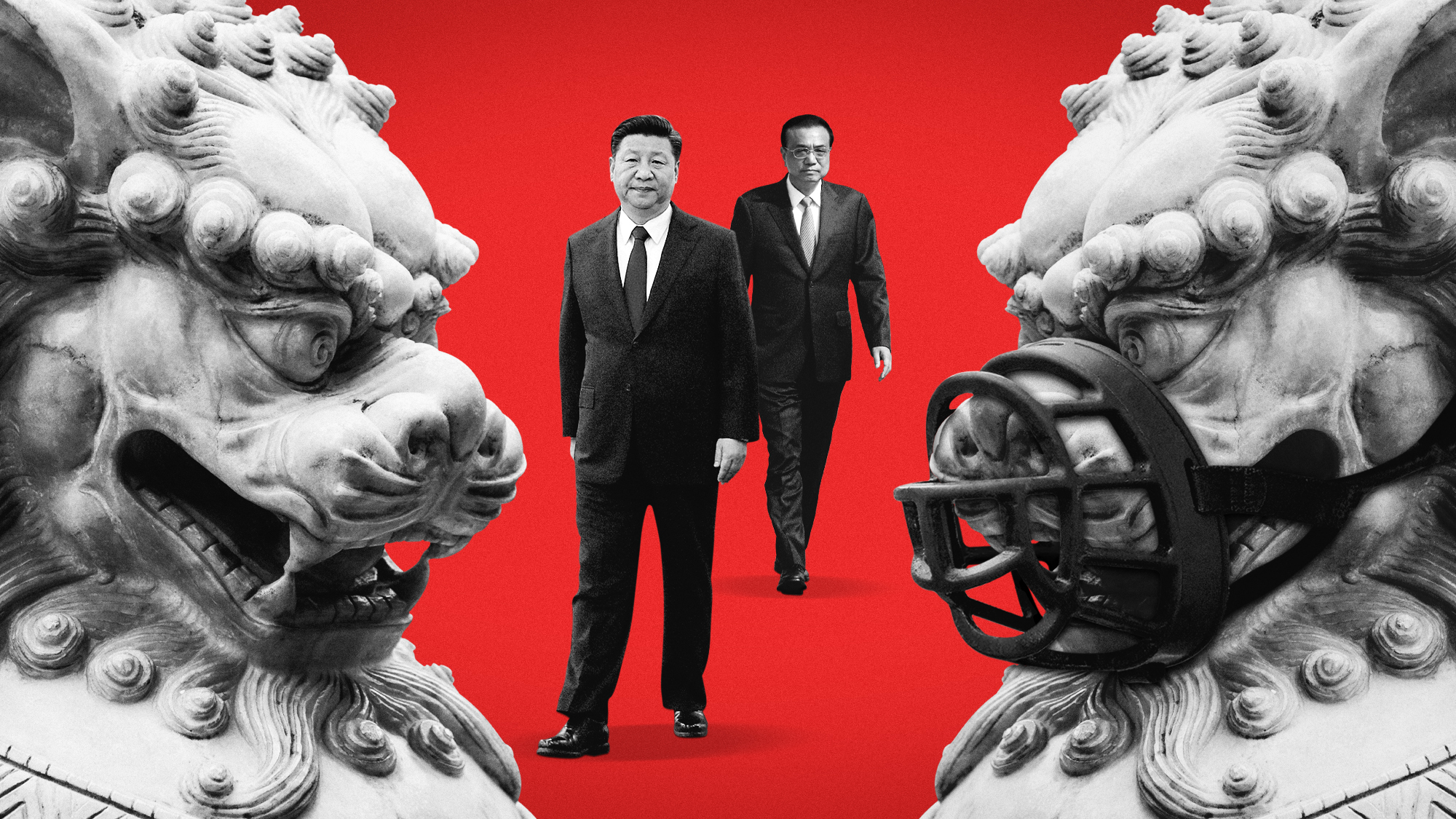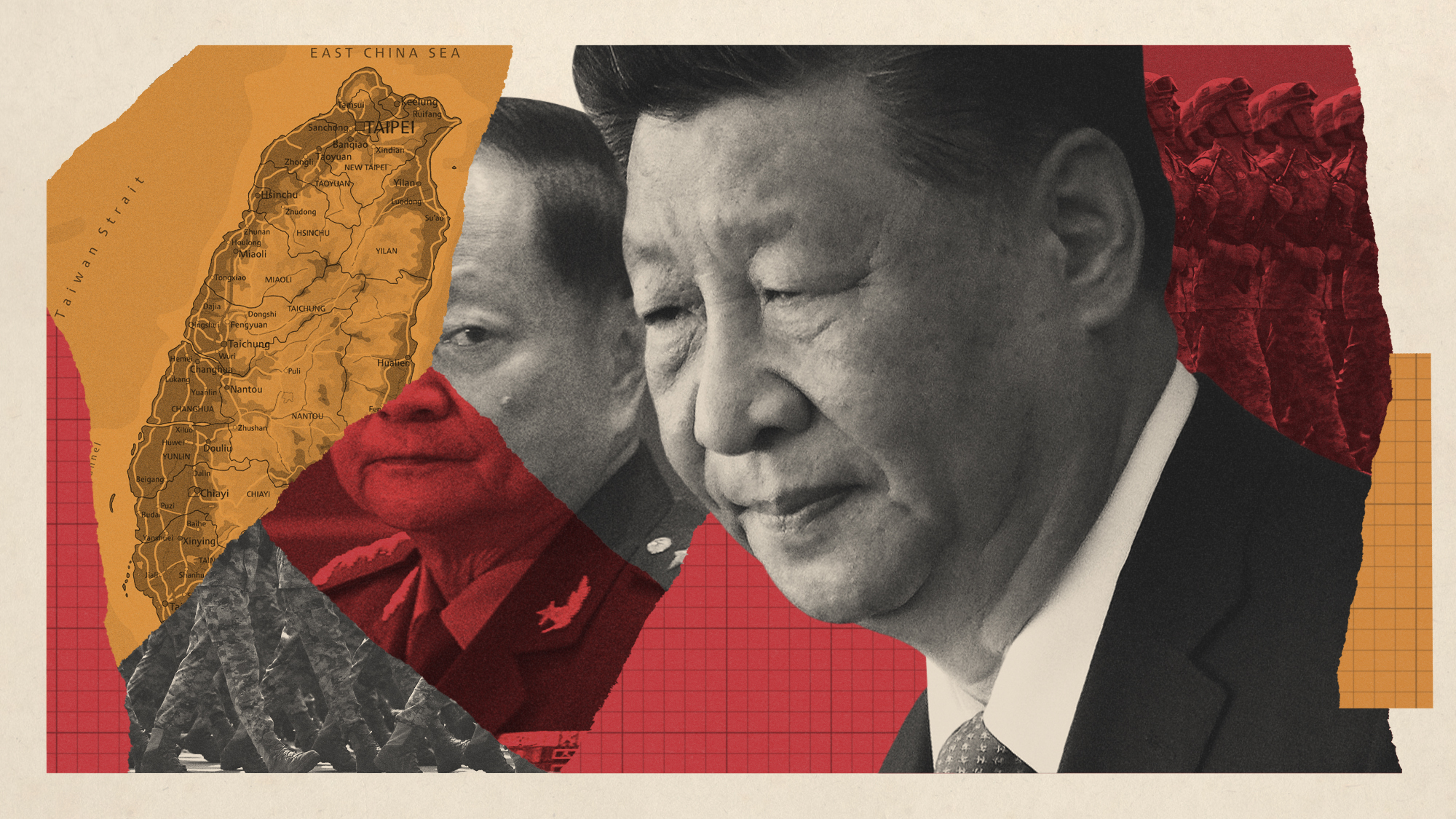Li Keqiang death: is China's reform era officially over?
Former premier was rare supporter of 'open-door policy' among Beijing's political elite

A free daily email with the biggest news stories of the day – and the best features from TheWeek.com
You are now subscribed
Your newsletter sign-up was successful
A senior Chinese politician sidelined by President Xi Jinping has died of a heart attack at the age of 68.
As premier, Li Keqiang was "nominally China's No. 2 leader" and was in charge of the economy until late last year. He was "once seen as a reform-minded contender to the country’s top leadership role", said CNN.
Speculation that the "reform era" in China is coming to an end has been gathering pace for months and with the passing of Li, those voices are only becoming louder.
The Week
Escape your echo chamber. Get the facts behind the news, plus analysis from multiple perspectives.

Sign up for The Week's Free Newsletters
From our morning news briefing to a weekly Good News Newsletter, get the best of The Week delivered directly to your inbox.
From our morning news briefing to a weekly Good News Newsletter, get the best of The Week delivered directly to your inbox.
What did the papers say?
Li was the only member of the Politburo Standing Committee to have "openly advocated" for the continuation of former leader Deng Xiaoping's "open-door policy", which "ran counter to the instincts of Xi Jinping", Willy Lam, a senior fellow at the Jamestown Foundation think tank in the US, told CNN.
His death "means the loss of a prominent moderating voice within the senior levels of the Chinese Communist Party", Ian Chong, from the Carnegie China think tank, told the BBC, with "no one apparently being able to take over the mantle".
The consequences of this could be significant. The reform era was "characterised by political stability, ideological openness, and rapid economic growth," Carl Minzner, an expert on Chinese law and governance at Fordham University in New York, wrote in a 2015 paper.
The death of Mao Zedong in 1976 had "cleared the way for a new mix of economic ideas", wrote Yuan Yang for the Financial Times earlier this year, but now, she added, many in China are "heralding the end of the reform era".
A free daily email with the biggest news stories of the day – and the best features from TheWeek.com
Xi has turned away from reform led by the private sector, positioned to make China "more attractive to foreign investors", said The Diplomat, to a "more cautious and balanced approach to economic development, embodied in the 'common prosperity' campaign".
Dake Kang, a Beijing-based correspondent for The Associated Press, wrote on social media earlier this year that he tells the "stream of visitors returning to China" after Covid restrictions "that we've entered a new era – the post reform era".
But how certain any of this is has been called into question. Predictions about economic affairs in China are always tricky, because politics in China is an "opaque black box", wrote Keith B Richburg for The Washington Post, so "nobody knows for sure" what is going on there.
What next?
Some believe that Beijing is in a reasonably strong position. China's economists "skipped straight from Marx to the free market theories of von Mises without a Keynesian interlude", said Yang. But if Chinese leaders invest in social infrastructure and services such as "national healthcare, a robust education system and unemployment credits", an "even better age might beckon".
Indeed, the "challenges" the nation is facing "don't necessarily mean China has now entered a period of decline", said Axios. Its economy, though growing at a "less-rapid rate", "remains massive" and is "still deeply intertwined with the global economy".
Xi's restructuring of China's economy towards high-tech industries could "eventually pull the economy out of the doldrums", it added. That development could "further bolster" Beijing's position that its preferred model is a "viable alternative to liberal democratic capitalism", or the "doomsayers may be correct", and China may be headed for a "long, slow decline".
Meanwhile, the Chinese government is expected to "unleash fresh fiscal stimulus" to "shore up its economic recovery", said Reuters. It will draw on a "well-used playbook that relies heavily on debt and state spending but falls short on the deeper reforms" suggested by some.
Chas Newkey-Burden has been part of The Week Digital team for more than a decade and a journalist for 25 years, starting out on the irreverent football weekly 90 Minutes, before moving to lifestyle magazines Loaded and Attitude. He was a columnist for The Big Issue and landed a world exclusive with David Beckham that became the weekly magazine’s bestselling issue. He now writes regularly for The Guardian, The Telegraph, The Independent, Metro, FourFourTwo and the i new site. He is also the author of a number of non-fiction books.
-
 Switzerland could vote to cap its population
Switzerland could vote to cap its populationUnder the Radar Swiss People’s Party proposes referendum on radical anti-immigration measure to limit residents to 10 million
-
 Political cartoons for February 15
Political cartoons for February 15Cartoons Sunday's political cartoons include political ventriloquism, Europe in the middle, and more
-
 The broken water companies failing England and Wales
The broken water companies failing England and WalesExplainer With rising bills, deteriorating river health and a lack of investment, regulators face an uphill battle to stabilise the industry
-
 How are Democrats turning DOJ lemons into partisan lemonade?
How are Democrats turning DOJ lemons into partisan lemonade?TODAY’S BIG QUESTION As the Trump administration continues to try — and fail — at indicting its political enemies, Democratic lawmakers have begun seizing the moment for themselves
-
 How did ‘wine moms’ become the face of anti-ICE protests?
How did ‘wine moms’ become the face of anti-ICE protests?Today’s Big Question Women lead the resistance to Trump’s deportations
-
 The UK expands its Hong Kong visa scheme
The UK expands its Hong Kong visa schemeThe Explainer Around 26,000 additional arrivals expected in the UK as government widens eligibility in response to crackdown on rights in former colony
-
 ‘Hong Kong is stable because it has been muzzled’
‘Hong Kong is stable because it has been muzzled’Instant Opinion Opinion, comment and editorials of the day
-
 How are Democrats trying to reform ICE?
How are Democrats trying to reform ICE?Today’s Big Question Democratic leadership has put forth several demands for the agency
-
 What do Xi’s military purges mean for Taiwan?
What do Xi’s military purges mean for Taiwan?Today’s Big Question Analysts say China’s leader is still focused on reunification
-
 Why is Tulsi Gabbard trying to relitigate the 2020 election now?
Why is Tulsi Gabbard trying to relitigate the 2020 election now?Today's Big Question Trump has never conceded his loss that year
-
 ‘Implementing strengthened provisions help advance aviation safety’
‘Implementing strengthened provisions help advance aviation safety’Instant Opinion Opinion, comment and editorials of the day